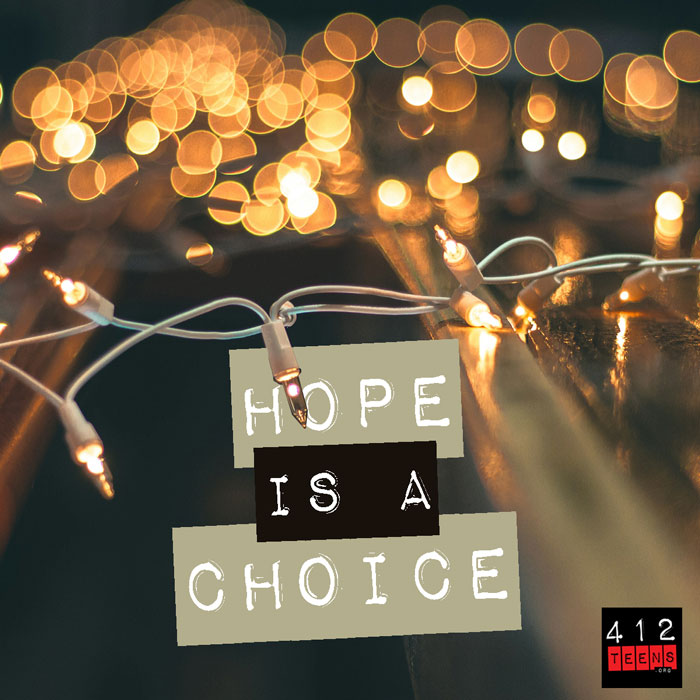Hope is a Choice

Originally posted on Wandering Star
I have always loved Christmas lights.
There is something about them that consistently returns me to a state of child-like wonder, something that pushes me to the kind of innocent hope I usually don't even believe exists anymore.
It has always been this way. Even as a teenager, I remember army crawling deep under the branches of my family's tree and then rolling over on my back to look up. The lights would glitter like a golden spray of stars frozen mid-shower, their rays broken and reflected on the silver tinsel garlands woven up over the dark branches. No matter where my heart was on those December days, the lights were a constant calm, whispering, "Be still. All will be well."
In 2013, I was a newly married 20-something in a new city just barely getting by with a dead-end job and a heart that seemed to have dead-ended as well, and Christmas lights honestly seemed like an extravagance I had no right to indulge. I had to rationally weigh the possibility of not decorating at all—after all, no one but me and my husband would see it anyway.
Maybe all of this just meant I had more reason than ever to pull out the strands of Christmas lights we used at my wedding and re-use them, in defiance of the grown-up cynicism that threatened to choke the light from that gray December. When I was a child, others hung up the lights for me, and I simply soaked in their glow.
Maybe part of being "grown up" is not retiring the lights, but rather choosing to hang them myself—even if there's no one to help or even to see.
I feel that hope is something we choose instead of something that happens to us. Hope is in defiance of, not rational reliance on, the shadows circumstance casts on us. Hope is truest when it is impossible. After all, the incarnation, this mystery that prompted this holiday, must have seemed the same—the strange idea that a newborn's cry heralded a collision of the dark night with the divine, that the frail infant hands held love enough to alter the course of human hearts forever.
So I now hang the lights and I hope, in memory of the way things have been and anticipation of what is to come, in recognition that the miracle of God-with-us is just as true today as it was two thousand years ago—and that is reason enough to shed a little light.
ALSO SEE:


TL;DR
Hope is something we choose instead of something that happens to us. Hope is in defiance of, not rational reliance on, the shadows circumstance casts on us. Hope is truest when it is impossible.

Writer & Consulting Editor: Mary Nikkel
Mary is a music and nonprofit writer passionate about telling purposeful stories about music, meaning, and mental health. She currently serves as Senior Content Manager for anti-human trafficking nonprofit The Exodus Road as well as providing PR services to bands and start-up nonprofits.
